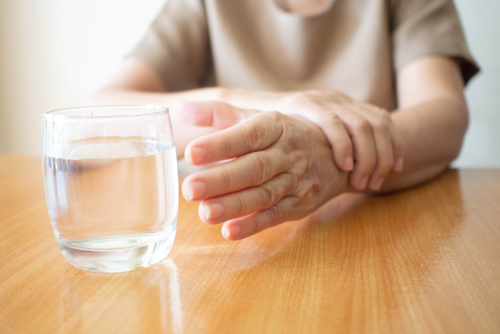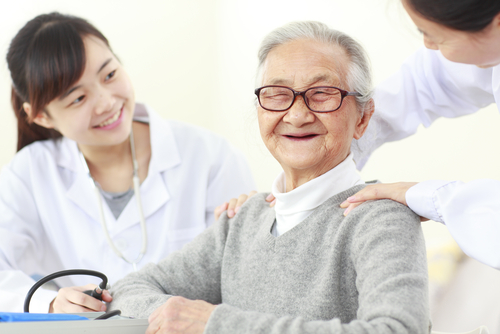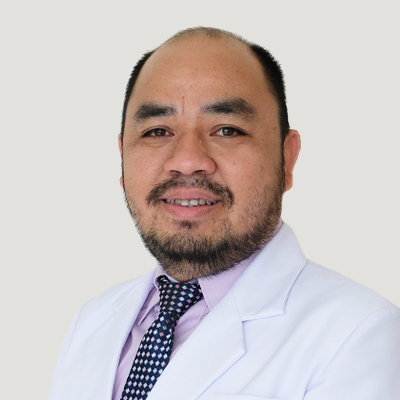
In the world, every year there are 15 million stroke sufferers and an estimated 1 person dies from a stroke every 6 seconds. Besides heart disease, stroke is also the 3rd most common cause of death. Seeing these facts, you definitely have to be aware of stroke symptoms from an early age.
Stroke is a disturbance of brain function that occurs suddenly, lasts for 24 hours or more, as a result of brain blood circulation disorders. The blood supply to the brain will be disrupted or experience a blockage (ischemic stroke) or a blood vessel rupture (hemorrhagic stroke). Because the blood is blocked, the brain does not get oxygen and nutrients so that the cells in some areas of the brain die. So that in stroke sufferers certain parts of the body do not function properly.
Stroke symptoms

Before it's too late, you can do early stroke detection through the FAST method. The FAST method stands for
- Facial drooping (facial drooping)
This symptom is seen through a face that is pulled to one side or down and is difficult to move. The face looks "fall" in one part and sufferers will find it difficult to drink from a cup.
- Arm weakness (arms become weak)
This symptom is seen when a person has difficulty moving his arms. You can do a test raising both hands, observe whether the hands fall or are not raised perfectly.
- Speech difficulties (difficulty in speaking)
Difficulty speaking is one of the characteristics you have a stroke. Sufferers will speak unclearly and tend to be difficult to understand.
- Time
If the three symptoms above have been shown, then time to get medical help is needed. The sooner help is obtained, the more brain cells that can be saved.
Apart from observing through the FAST method, there are still other symptoms of stroke, such as sudden drowsiness/loss of consciousness/fainting, spinning dizziness, feeling of numbness/tingling in half of the body, and sudden visual disturbances in one or both eyes.
Stroke risk factors

In stroke, there are several risk factors that cannot be changed or controlled so as to increase a person's chances of having a stroke such as being a man over the age of 55, having had a stroke, having a family that has had a stroke (genetic factors) or having an arteriovenous malformation or aneurysm in the form of an abnormality blood vessels of the brain where the stroke occurs at a younger age such as children and/or adolescents.
While the risk factors that can still be changed or controlled are people with hypertension (high blood pressure), diabetes mellitus, obesity (overweight), stress, smoking, alcohol consumption, and an unhealthy lifestyle.
Stroke prevention

Anyone can have a stroke, but that doesn't mean it can't be prevented. There are two types of stroke prevention, namely Primary Prevention and Secondary Prevention. Primary Prevention is prevention (which is highly recommended) before having a stroke. The trick is to maintain the 7 healthy lifestyles, namely exercising, controlling cholesterol, healthy eating patterns, controlling blood pressure, maintaining ideal body weight, reducing blood sugar, and stopping smoking. Meanwhile, Secondary Prevention is an effort to prevent recurrent strokes by controlling existing risk factors, such as controlling high blood pressure, cholesterol levels, blood sugar, uric acid; changing lifestyles; take medicine according to the doctor's advice regularly; as well as regular visits to the doctor
Help for the early symptoms of a stroke

The help that must be sought if there are early symptoms of a stroke is to immediately take it to the nearest hospital and preferably one that has a neurologist ( neurologist ) and stroke unit facilities. The sooner help is given, the more chances of saving the brain. Accurate and fast aid must be carried out immediately to avoid death or permanent disability. Every minute of delay in helping the brain not to lack blood means 1.9 million brain cells and 10km of brain fibers will die.

For prevention and treatment of stroke symptoms, you can consult with Dr. Dewanta Sembiring, SP. S at EMC Sentul Hospital from Monday to Friday at 11:00-17:00 WIB. You can also find out more information or make an appointment for a consultation schedule in advance by telephone at 021-29672977. Let's prevent the early symptoms of a stroke before it's too late. #LiveExcellently
